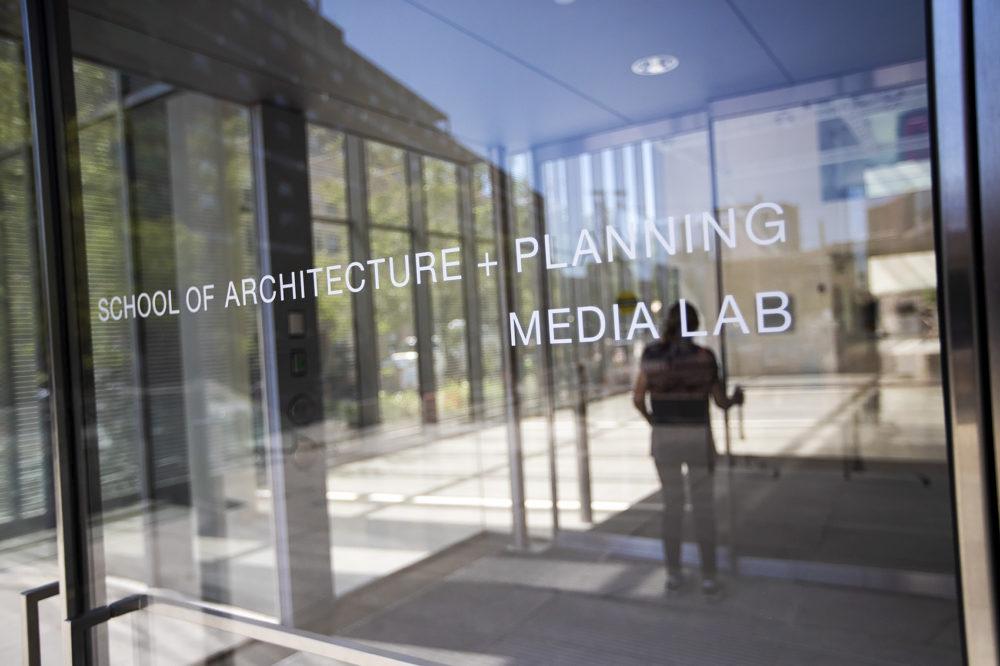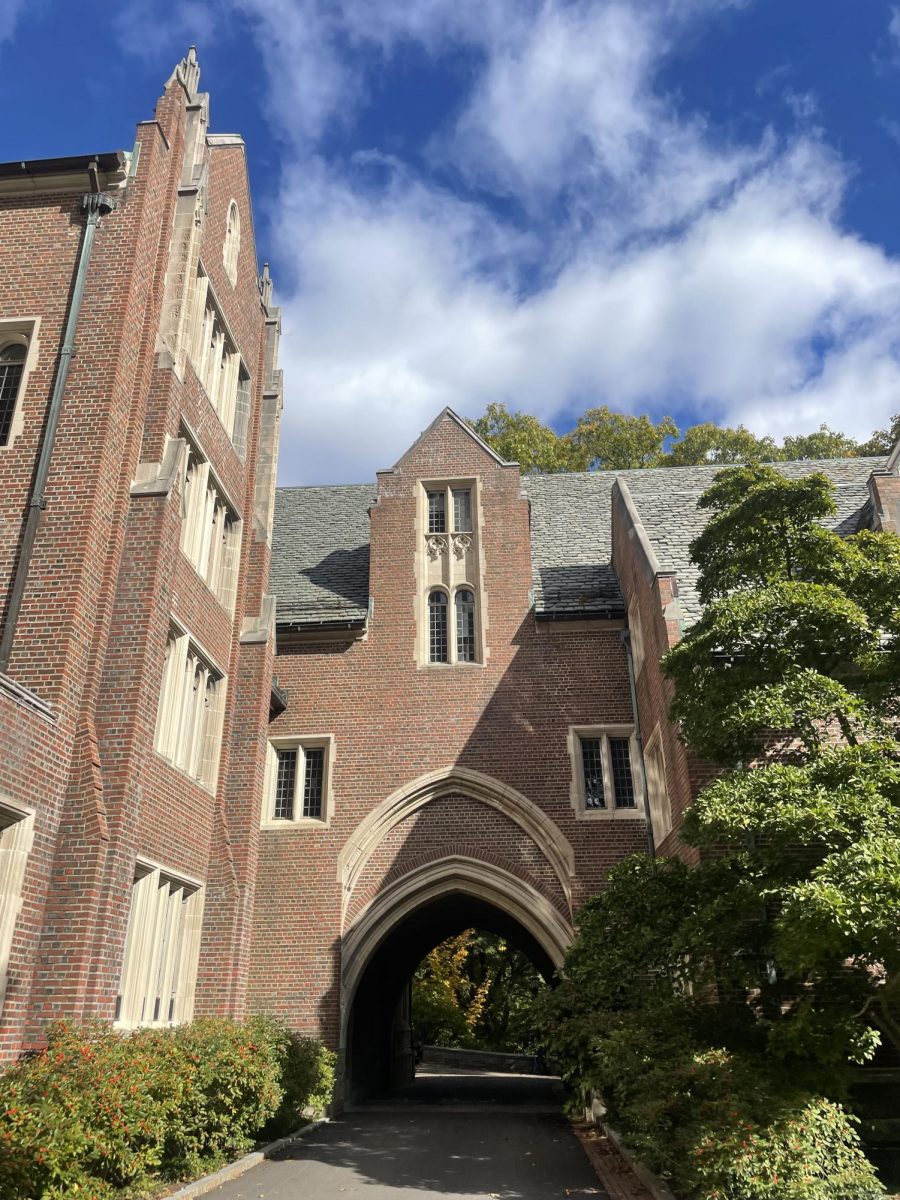Each year, dozens of Wellesley students take MIT classes and participate in MIT lab research through the Undergraduate Research Opportunities (UROP) program. So when news broke last summer that professors and administrators all over MIT had accepted donations from convicted sex offender and financier Jeffrey Epstein, some Wellesley students were caught in the middle of it.
The first sector of MIT where Epstein’s influence was brought to light was the Mit Media Lab. Several Wellesley students worked there last summer, and at least one left the lab after the news that much of the lab had been funded with Jeffrey Epstein’s money broke. Three of those student workers spoke with the News, all on condition of anonymity due to fear for their jobs.
When she was accepted for an undergraduate research position at the Media Lab this past spring, one student from the class of ’22 says she felt like she had finally made it to a place where her work could make a difference. “I remember when I went into the media lab for the first time, for my interview, I just thought, wow,” she said. “If you’ve ever been there, it just feels important. It was like I was being welcomed into this hub of thinking and science.” The Media Lab’s research spans disciplines, and focuses on “connecting technology to the social and the human,” according to their mission statement.
But in early fall 2019, it was revealed that Joi Ito, the director of the Media Lab, had been accepting millions of dollars in donations from Epstein, who committed suicide in early August after he was charged with child sex trafficking and other crimes. Ito had been to parties of Epstein’s, he admitted. He had travelled to Epstein’s private island. Ito’s connection to Epstein–and the fact that he was, for a long period, not required to disclose it–revealed some issues in the way funding at the Media Lab is structured.
As the anonymous Wellesley student put it, “It’s an interesting tale of techno-utopianism. Because of how the funding structure operates at the media lab, these companies just give you money and you can do whatever you want with it, which is a lot more freedom than most researchers get. And this just shows you the pitfalls that can go along with that.”
Another student who worked at the Media Lab that summer, who is in the class of ’21, said that the news broke during her “last couple of weeks” at the lab. Then, students and researchers in the Media Lab began to speak out about the lack of transparency of its finances. “One to two weeks later, he actually sent in a resignation letter,” the Wellesley student said, “but I don’t think anyone was actually expecting that to happen.”
She, like many others working at the media lab, was shocked. But as she and one of the other students the News spoke with noted, much of the media lab immediately rushed to Ito’s defense. “I was inspired by him,” she said. “He was definitely one of the reasons I started working at the media lab. I was shocked when his apology came out…as people started replying to his email, I started to realize that he likely knew that Jeffrey Epstein was a sexual offender, and decided to take funds for the media lab anyway.”
Another Wellesley student who worked at the Media Lab at the time said that the institution’s lack of response to the allegations affected her personally. “I was very upset, to say the least,” she remembered. “The administration like kind of just left that there after he apologized, and that became a big debate over email, which is never conducive to constructive or victim-centric conversation. So there were some things said there that were rushing to his side too quickly for me to be comfortable with it. I remember just…breaking down in the most random places. I was crying everywhere. It was impossible for me to do my work.”
The day after the New Yorker published an article detailing the allegations against Ito in particular, Ito resigned. Several other members of the Media Lab – principal investigators, graduate students and undergraduates – also began planning their exits, either because they believed Ito had been unfairly maligned or because the lab was no longer an environment they felt safe in.
One Wellesley student says that the graduate student who was assigned to be her mentor at the Media Lab even suggested that she leave the lab altogether. “My grad student was saying this isn’t necessarily a great environment, and after the news cycle ends, the Media Lab might not be a good thing to have on your resume,” she said. But she stayed regardless, because leaving would have meant losing her first-ever academic publication credit. She was not willing to give that up.
According to a growing coalition of people associated with MIT and Wellesley, the MIT administration’s willingness to cover up the wrongdoing of powerful donors goes far beyond Joi Ito and the media lab. “There’s been a lot of talk about how when you’re at an institution like MIT, there’s no way that your funds can be completely not bad money,” one Wellesley student noted. “That’s something a lot of people grappled with. Receiving a lot of money, versus who they’re receiving it from.”
On Friday, Oct. 4, a group of MIT students and community members mobilized to call attention to the ethical problems with some of MIT’s funding sources. The rally, which was organized by No Dark Money MIT, a coalition comprised of the groups UnKoch MIT, Students Against War, and the Movement for Anti-Oppressive Computing Practices. They drew attention to three specific MIT funders: David Koch, Saudi Crown Prince Mohammed bin Salman and of course, Jeffrey Epstein. No Dark Money MIT asserted that many in MIT’s upper administration have ignored the human rights abuses of each of these actors in their search for research funding. The protestors called for the resignation of, among others, MIT President L Rafael Reif and professor of physics Seth Lloyd, who was friends with Epstein and visited him in jail. The protesters believe that President Reif knew about Epstein’s contributions to the Media Lab and stayed silent about it so the rest of the MIT community would not do anything about it.
“President Reif has said he had limited facts,” said student Alonso Espinosa Dominguez at the rally. Reif claimed that his inaction regarding Epstein was a product of his lack of necessary facts on the case. Dominguez, however, disagreed. “That’s clearly baloney.”
Student Lily Chen, who won national College Jeopardy last year, spoke about how her feelings towards Reif have shifted since learning about the donors he has accepted money from. When she won College Jeopardy, she said,“Reif personally sent me flowers. I’m guessing he wouldn’t do the same now.” Calling for MIT President Reif to resign, she asked “Are we truly that radical for saying that MIT should not accept money from pedophiles?”
The group marched across campus to a tent where members of the MIT Corporation, the body that makes the university’s financial decisions, were having a luncheon. Though they found the tent’s entrances blocked by several MIT police officers, they continued chanting and speaking outside of the tent for another hour. No one came out to watch them.
The Wellesley students who work and attend class at MIT, meanwhile, have had to figure out how to navigate this situation on their own. “It’s hard to feel like you can assert your agency there, as a Wellesley student,” one student lab worker said. “You’re part of the community, but then you’re also not. There’s not equal access to support, or even just to information flows. You don’t know what’s going on as much because you’re not there as much. But when you are there, what’s going on does affect your work and what you do.”
Another student from the class of ‘22 who still works at the media lab says that a Wellesley Class Dean spoke very cavalierly to her about her experience there.
“Dean Susan Cohen asked about my research,” she recalled, “And I told her I’d done research at the media lab over the summer. Her response was, ha ha, I hope you weren’t being paid by Jeffrey Epstein. That wasn’t the only Wellesley response–I talked to a lot of science professors and they were very supportive–but some people didn’t take it very seriously.”
The opportunities Wellesley students have to partake in MIT student life, classes, and research are highly regarded at Wellesley. It is mentioned with pride on campus tours as a way to access the resources of one of the world’s top research universities while still being a Wellesley student, said an anonymous student. “Having that become, frankly, unsafe and unsavory, and not being told about that at all is really bad. There are institutional problems there that are operating on a much vaster scale than at Wellesley.”







toy | Oct 15, 2019 at 2:03 pm
I graduated from Wellesley
and went to the media lab for grad school
I want to be very clear
Epstein did not fund most of the lab
it takes MILLIONS and not just 1 or 2 to fund that lab
and Epstein was no where near that
he was in the 6 digit range at best
students and media alike
pls check yr facts before putting down anything